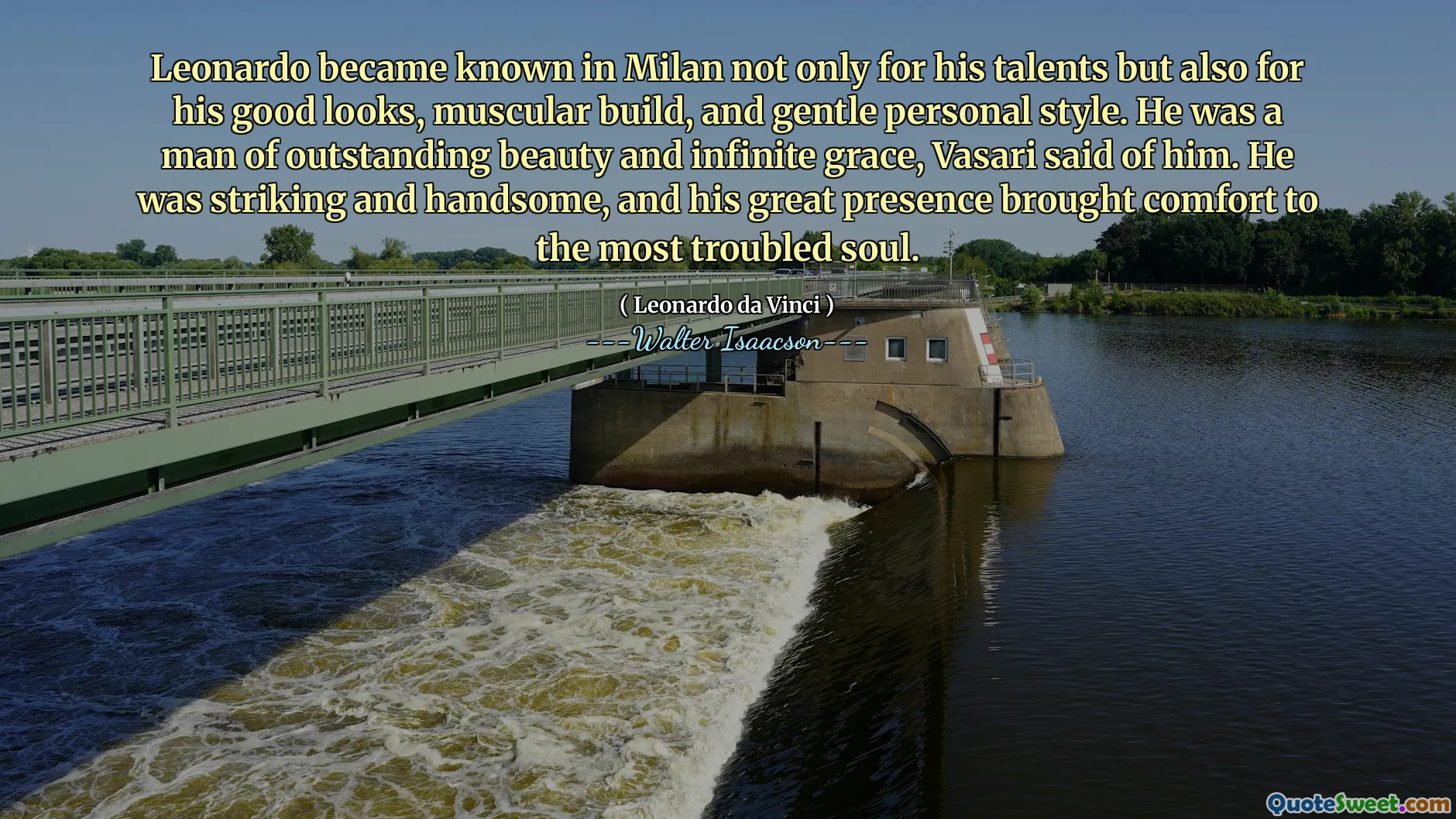
Leonardo became known in Milan not only for his talents but also for his good looks, muscular build, and gentle personal style. He was a man of outstanding beauty and infinite grace, Vasari said of him. He was striking and handsome, and his great presence brought comfort to the most troubled soul.
Leonardo da Vinci is widely celebrated for his unparalleled genius and groundbreaking artistry, but this quotation sheds light on a different yet equally fascinating aspect of his persona—his physical appearance and demeanor. It suggests that Leonardo's attractiveness and graceful presence contributed to his reputation, influencing how people perceived and interacted with him in Milan. This perspective enriches our understanding of da Vinci as a multidimensional individual who embodied both intellectual brilliance and personal charm. His good looks and muscular build, coupled with his gentle style, may have helped him forge connections and inspire Trust among his contemporaries, which could have further supported his endeavors as an artist, scientist, and thinker. Moreover, the admiration Vasari expresses highlights how beauty and grace are often intertwined with a person's influence and legacy, transcending mere superficial qualities to become symbols of inner harmony and balance. Appreciating Leonardo not only as a master of art and science but also as a figure of aesthetic and personal appeal humanizes him, showing that his talents were complemented by a natural charisma. This combination of ability and allure exemplifies the Renaissance ideal—union of physical and intellectual greatness. Recognizing the importance of appearance and demeanor in historical figures can offer a more nuanced view of their interactions and societal roles, emphasizing that formidable talents are often complemented by qualities that resonate on a deeply personal level with others.





